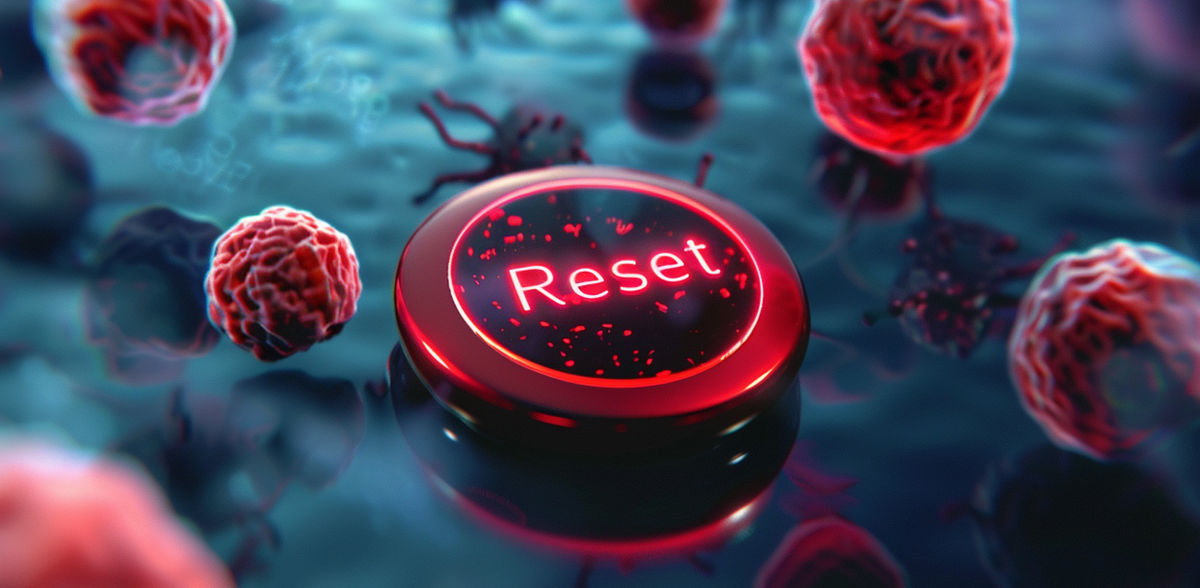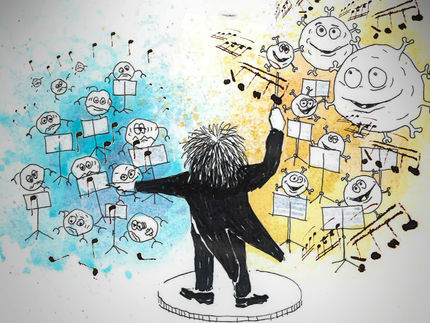Revolutionary cell therapy: rebooting the immune system stops autoimmune diseases
Single infusion of CAR-T cells replaces immunosuppressive drugs
In March 2021, doctors at FAU treated a young woman with a severe autoimmune disease with chimeric antigen receptor (CAR) T cells for the first time in the world. Today, almost three years later, they have now been able to publish a pilot study in the New England Journal of Medicine and show that various autoimmune diseases actually disappear completely for a long time after CAR T-cell therapy, without the need for further drug treatment.
"We think we have managed to find the 'reset button' that, like a computer, makes it possible to trigger a restart and reboot the immune system without errors," says Prof. Dr. Georg Schett (Director of Medical Clinic 3 - Rheumatology and Immunology), who conducted the study together with Prof. Dr. Andreas Mackensen (Director of Medical Clinic 5 - Haematology and Clinical Oncology). The team pressed this "reset button" in 15 patients with severe forms of autoimmune diseases, such as "red wolf" (systemic lupus erythematosus), systemic sclerosis (also known as scleroderma) and autoimmune muscle inflammation (myositis). A single infusion of the body's own cells manipulated outside the body, so-called "CAR-T cells", led to a resolution of the chronic inflammation in organs such as the heart, lungs and kidneys as well as joints and skin, making it possible to completely discontinue immune-inhibiting drugs such as cortisone for several years.
Treatment with CAR-T cells is made possible by a special clean room laboratory in the Medical Clinic 5 at Erlangen University Hospital. There, the patient's own immune cells are transformed into therapeutic weapons (CAR-T cells). These living drugs are produced by a kind of "maître" - PD Dr. Michael Aigner and his team at the GMP laboratory - who monitors the manufacturing process and checks the quality of the cells before they are returned to the patient. The CAR-T cells thoroughly attack the pathogenic B lymphocytes in the bone marrow, lymph nodes and all other organs. The complete elimination of the B cells ultimately results in the disease being cured, as the publication in the New England Journal of Medicine now impressively demonstrates.
"What is particularly interesting is that the B cells return some time after therapy, but not the disease," say Dr. Jule Taubmann and Dr. Fabian Müller, who look after patients after therapy as part of an interdisciplinary team. The new B cells in the patients are naive "innocent" cells that are similar to those of a child and no longer cause disease.
Note: This article has been translated using a computer system without human intervention. LUMITOS offers these automatic translations to present a wider range of current news. Since this article has been translated with automatic translation, it is possible that it contains errors in vocabulary, syntax or grammar. The original article in German can be found here.
Original publication
Other news from the department science

Get the life science industry in your inbox
By submitting this form you agree that LUMITOS AG will send you the newsletter(s) selected above by email. Your data will not be passed on to third parties. Your data will be stored and processed in accordance with our data protection regulations. LUMITOS may contact you by email for the purpose of advertising or market and opinion surveys. You can revoke your consent at any time without giving reasons to LUMITOS AG, Ernst-Augustin-Str. 2, 12489 Berlin, Germany or by e-mail at revoke@lumitos.com with effect for the future. In addition, each email contains a link to unsubscribe from the corresponding newsletter.





















































